Inside the sky-high world of drug-smuggling flight attendants
Terese White, 41, was meant to fly to Boston. Instead, she landed in police custody.
Last October, White was a Mesa Airlines flight attendant traveling from Dallas to San Diego. Between flights, she exited the SoCal airport and returned later that day to go from San Diego to Boston. As is the habit of flight attendants, according to her plea agreement, White, a Dallas resident, “attempted to utilize the Known Crew Member queue” — a TSA security line that lets airline employees sail through with reduced screening.
“You have a KCM card. You scan the card, show your company ID and driver’s license and walk right through,” a former Mesa Airlines flight attendant told The Post. “But, sometimes, you get a ‘random.’ That’s when you are randomly chosen to go through the security that everybody else goes through.”
Unfortunately for White, this was the day she was selected.
She’s now awaiting sentencing after pleading guilty to one account of possession with intent to distribute fentanyl. White is just the latest flight attendant to use what the US Attorney’s Office in the Southern District of California called “privileges as a flight attendant” as a tool for smuggling drugs.
Like the title character of the Quentin Tarantino movie “Jackie Brown,” crooked flight attendants find frequent travel plus lax security a tempting combination. Paid off by drug dealers, some of them turn their privilege into a side hustle: acting as convenient mules to move contraband around the United States.
“It stands to reason that this [smuggling by flight attendants] is commonly done,” attorney Dennis Ring, who represented convicted flight attendant Marsha Gay Reynolds, told The Post. “I would think this is quite common but they don’t get caught frequently.”

The random screenings, he pointed out, “are an uncommon occurrence.”
The former flight attendant source recalled an industry colleague who “used to go to Mexico and bring back Ritalin, Xanax and Adderall. She did not have prescriptions, she would come back with boxes and sell [the drugs] here.”
As recounted in the United States District Court complaint, White appeared hesitant to enter the the “advanced imaging technology machine” — the full-body scanner that travelers step into for low-energy X-ray. Once inside, as per the complaint, White began shaking.
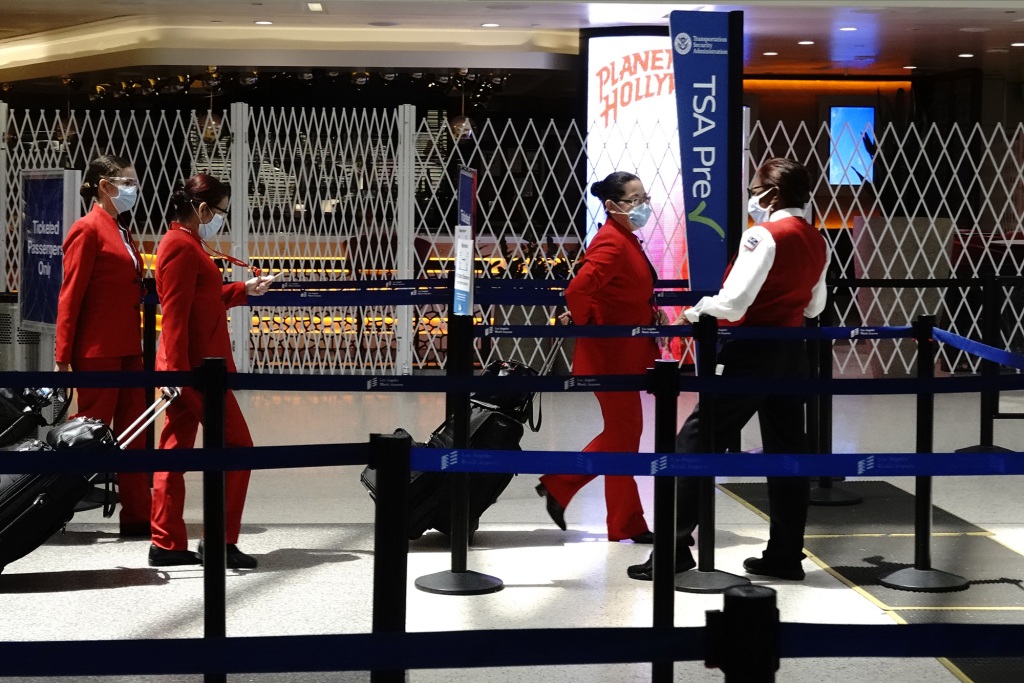
She had good reason to be nervous. The machine quickly recognized something rigged to her mid-section.
Taken into a private room for screening, White removed what is described as “a large mass wrapped around her abdomen” — but she insisted that it was “not what you think.”
She told screeners that the material was a “mercury pack” designed for weight loss. Los Angeles-based weight-loss physician Dr. Abe Malkin told The Post: “I’ve never heard of a ‘mercury pack’ for weight loss. As far as I know, it doesn’t exist.”
A test of the pack revealed the truth, though: The complaint alleges that White was attempting to smuggle and transport more than three pounds of fentanyl.
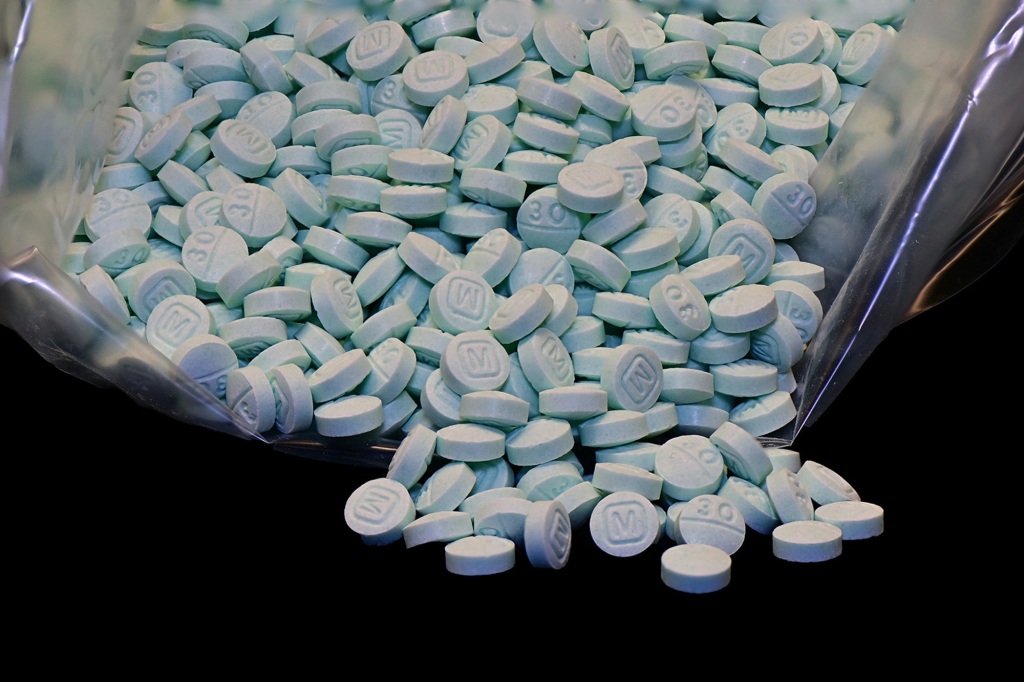
According to a statement from the United States Attorney’s Office, White pleaded guilty this past December and admitted that she “attempted to use her status as a flight attendant, a position of trust, to facilitate the offense.”
She is scheduled to be sentenced on March 24. Her attorney did not return calls for comment. Mesa Airlines did not comment.
The former flight attendant source attributed the unraveling of White’s drug smuggling scheme to bad luck and bad planning. “She probably would have avoided getting busted if not for the random. Also, if [the drug pack] was in her suitcase instead being attached to her body, I don’t know that she would have gotten caught.”
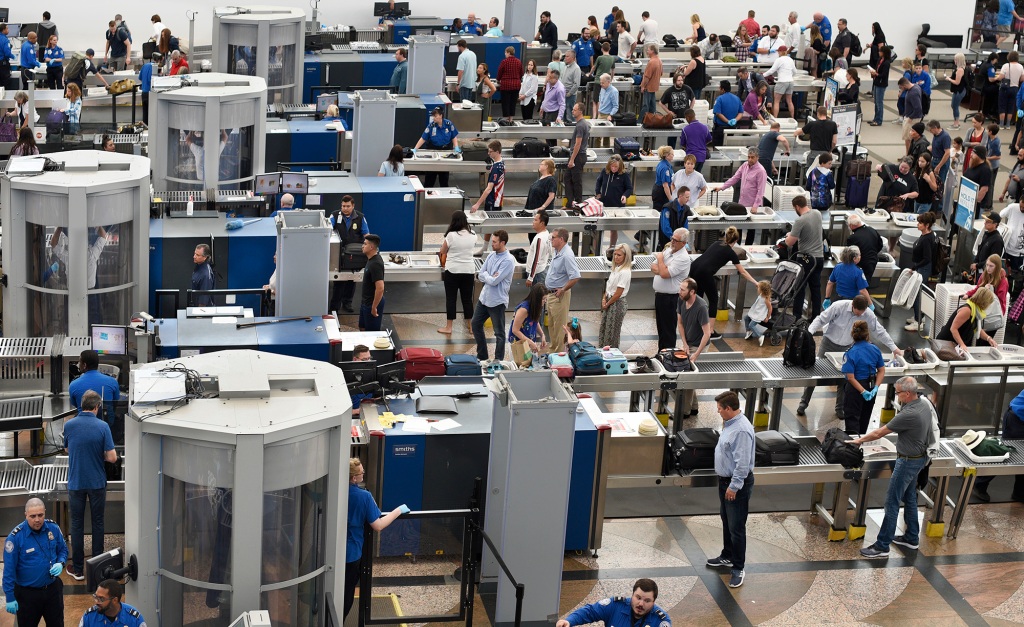
What she does know is that fellow flight attendants are ticked off at White because her crime has screwed up a good thing for the rest of them.
“Everyone is kind of annoyed. Going through KCM, [they’re] getting randomed all the time now. One person ruins it for everybody else,” the source said. “Doing something like [what White did] is pretty f–king ballsy .. and f–king stupid. You lose your job and the ability to see the world. I would never risk doing that.”
Though White went quietly for her random screening, other airline employees are more brazen. Such was the case, at least initially, with beauty queen turned JetBlue flight attendant Marsha Gay Reynolds. As The Post reported in 2016, when the then 34-year-old was stopped for screening at LAX in Los Angeles, she kicked off her Gucci heels, dropped her bags and bolted.
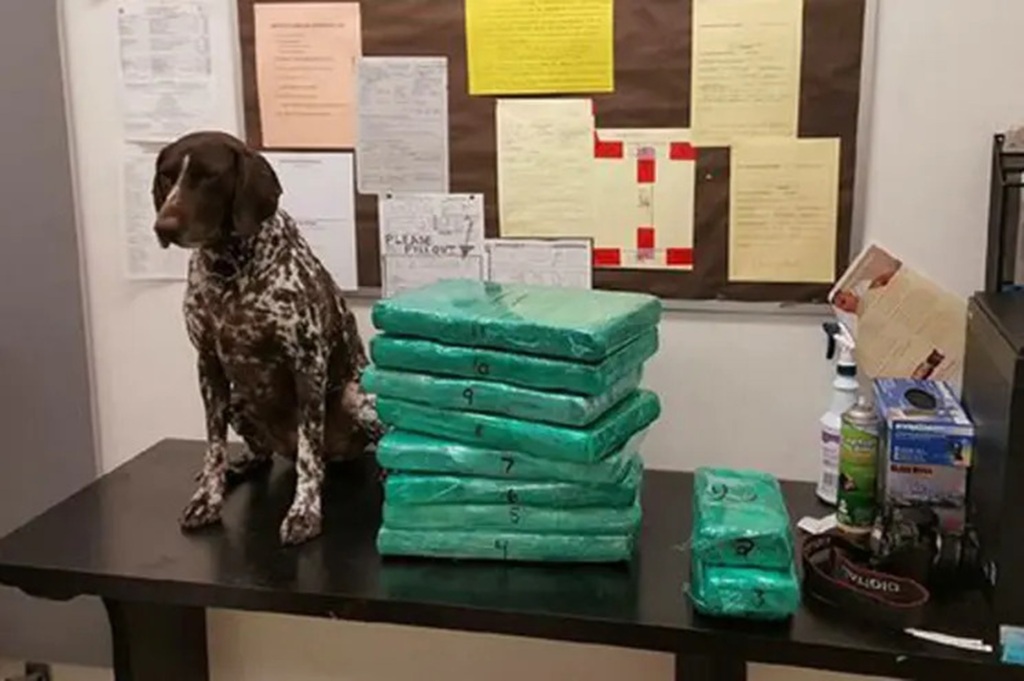
Inside her luggage: 70 pounds of cocaine, with a street value of $2 million.
Somehow, Reynolds reportedly managed to board a flight to New York and, upon landing, hole up in a Hilton Hotel near JFK before turning herself in.
According to the United Sates Department of Justice, Reynolds had been enlisted in her misdeeds by a Jamaican man named Gaston Brown. The DOJ stated that that the two had collaborated to smuggle illicit substances on six different occasions. Last year, Brown was sentenced to 165 months in federal prison for charges that include two counts of conspiracy to possess and distribute cocaine.
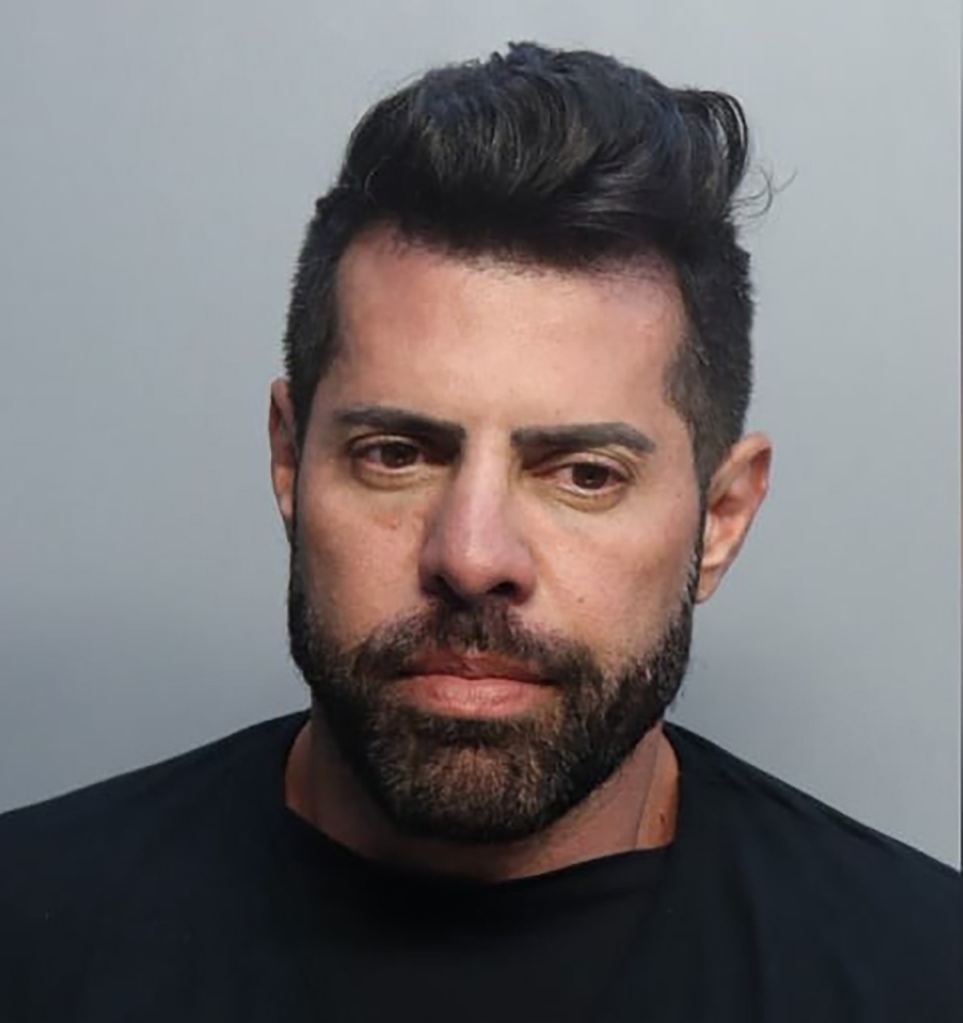
This past November, Delta flight attendant Marcelo Chaves and his boyfriend, were arrested while exiting a Brazil to Miami flight. According to Miami’s channel 10 news, Robert Brisley of US Customs and Border Protection said that they were busted for “possession and transportation of narcotics.”
Aa per the report, the two were allegedly carrying drugs, including methamphetamine and ketamine, stored in plastic bottles. Chaves and his beau admitted to “doing drugs in Brazil” but expressed no knowledge of the illicit goods in their suitcase. They are now contending with felony drug trafficking charges.
The lawyer for Chaves did not comment. A Delta spokesperson told The Post, “Delta continually cooperates with law enforcement entities and the off-duty flight attendant in question has been suspended pending outcome of an investigation.”
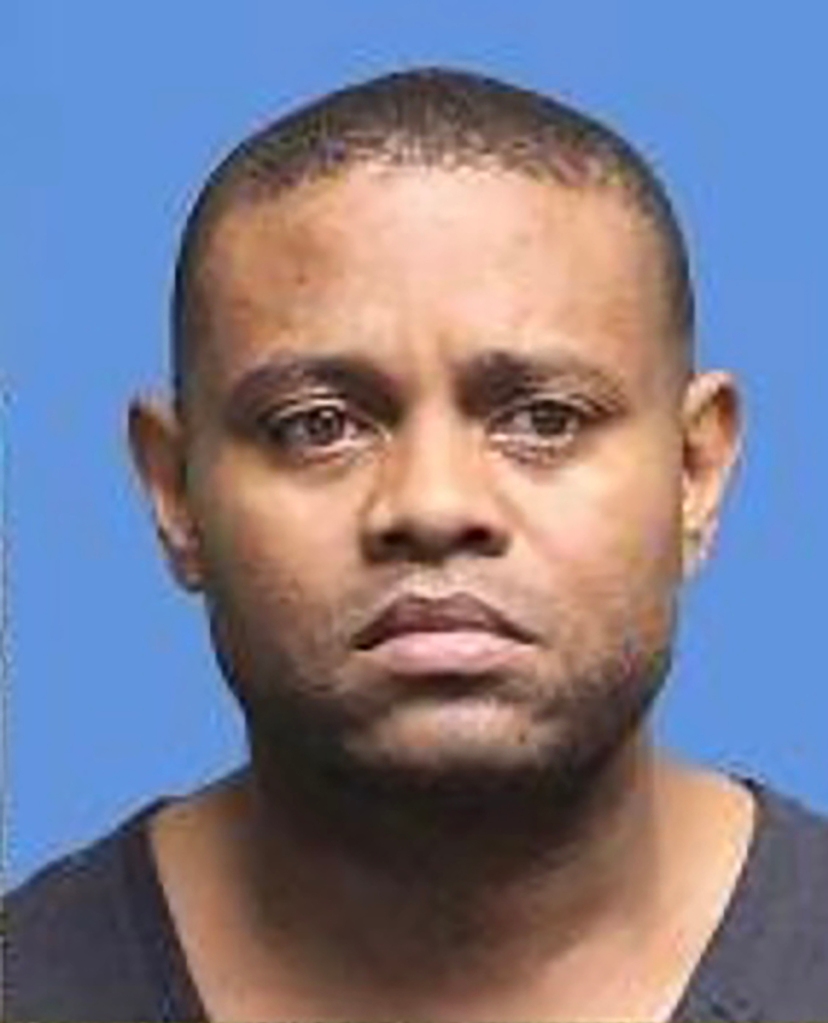
Some flight attendants are slicker than others. Rohan Myers, once a high-flyer for Caribbean Airlines, had an elaborate set-up under his pants. According to a criminal complaint filed in 2015, while on the job, he wore “spandex type compression garments” under his clothes, containing molded inserts that contained nearly seven pounds of cocaine.
Like White, Myers was done in by an unexpected search. Once he started “sweating profusely and answering questions with his head lowered,” customs officials became suspicious. Myers admitted to being promised $10,000, upon delivery of the drugs, by a man he called Bigga NFI.
Myers’ attorney and Caribbean Airlines did not offer comment.
“Flight attendants are easy pickings if you’re a calculating drug smuggler,” said Reynolds’ attorney Dennis Ring. “The flight attendants are not wise to the world. I suspect that half the time these people are not aware of the severity of what they are doing. People don’t even realize that this is a federal offense. They don’t ask a lot of questions.”
Read the full article Here


